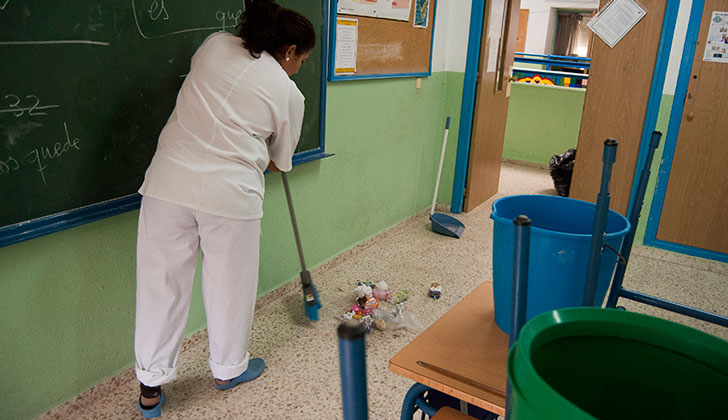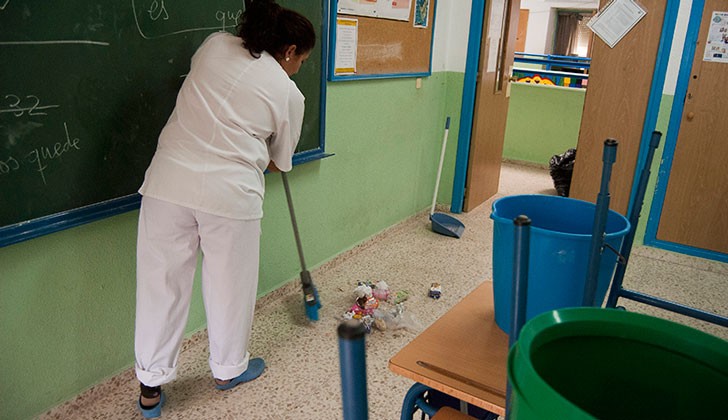
Prego questioned statements by the president of the Central Board of Directors of the National Administration of Public Education, Robert Silva, who days ago told El Observador that ANEP’s “problems” are the “thousands of certified assistants and unfilled vacancies.”
Faced with such statements by Silva, the union that brings together non-teaching primary school workers clarified that “for years, the union has denounced the lack of non-teaching staff, specifically service assistants in the different educational centers in the country, either due to the vacancy for whatever reason (retirement or death) or due to non-coverage, because they are considered essential in another institution”.
Prego said that it is necessary to create at least 600 public positions throughout the country as a result of: “the non-filling of vacancies, absences due to illness, and the number of workers with a regimen of reduced tasks (the majority product of the daily activities in the centers schoolchildren)”.
“This is not a new issue but rather one that is repeated year after year, but with greater magnitude in the latter as a result of the pandemic, which involved not only carrying out daily tasks, but also complying with a ‘Cleaning Protocol’ designed for a number much higher than what schools and kindergartens have,” he added.
The union leader said that there are institutions with one or two officials to carry out cleaning tasks in an entire building and also cook in some cases in the three instances for hundreds of schoolchildren.
In each bipartite and since the new authorities took office, this issue is the first to be addressed. “But unfortunately we do not receive the answers that we consider correct and the authorities choose to hire officials for initial contracts for that cause (distorting the role of the director) and 15 hours a week (three hours a day), or by social cooperatives / outsourced companies, something that Silva defines as ‘gold dust’ to resolve the shortage of auxiliaries through this modality, or by loans from other public agencies (intendencies)”.
The union leader said that “gold dust” would increase the list of public officials in order to have everyone with the same position, workload and rights.
He also questioned that “these solutions” generate “precarious work, 8 hours a day in the case of cooperatives with a much lower income than the public official and without any rights.”
Inequality
Prego demanded the generation of a budget to enter civil servants and achieve the principle of equal function, equal remuneration, which does not exist in the sector of non-teaching civil servants in Primary.
“It is contracted with another modality and generates economic and rights inequality,” he remarked.
On the other hand, he denounced the existence of a problem “with time extensions, that is, the passage from 5:30 to 6:30 daily working hours of non-teaching staff that was requested universally and that, however, from the administration refuses.
In the absence of officials, it is a “palliative” to the situation, although not the ideal, the permanence of the workers one more hour makes a better service, which would also be “gold dust”.
“We have not advanced in the creation of public positions such as extending the work of non-teaching officials of the different ranks for another hour and we hope that in this next Rendering of Accounts money will be allocated for what has been expressed,” he indicated.
In turn, he denounced the “violation of collective agreements and negotiation insofar as there were restructurings in divisions without the opinion or intervention of the union (as provided by Law 18,508), and the paralysis of files related to legitimate compensation that management officials must perceive”.







